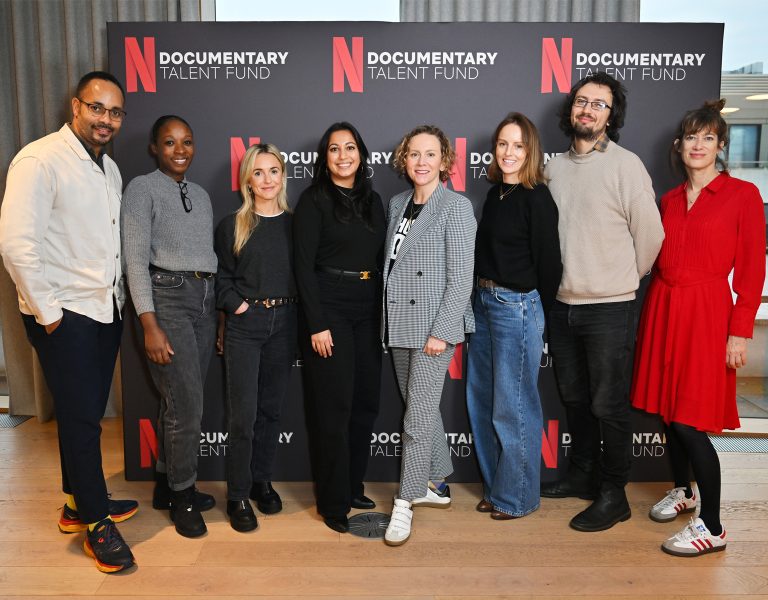
A landmark new pilot study from ScreenSkills and 4Skills, conducted by Ampere Analysis, has provided a first of its kind detailed look at the British Screen Industry’s off-screen workforce, enabling ScreenSkills to develop the talent and expertise required to build a world-leading, inclusive, and adaptable workforce for the UK screen industry, now and for the future.
Forming part of ScreenSkills’ 5 year strategic plan, this first piece of innovative research has confirmed for the first time that the UK’s British Screen Industry’s off-screen workforce in 2024 was estimated to be between 183,000 and 194,00 people. Published today, the report offers a comprehensive snapshot of the behind-the-camera talent working across animation, children’s programming, film, television (excluding news and sport), VFX and post-production in the UK.
Key findings include:
- UK screen industries create jobs for over 190,000 people
- 65% of freelancers have found it hard find work in the past year
- Skills gaps most common in mid-to-senior roles
- Over half of the workforce wish to transition to a similar role in a different production sub-sector, genre or format, or to a new production role
- The workforce has become more diverse but challenges persist – particularly in social mobility
These findings show the scale and complexity of the UK’s screen industries and highlight the need for continued policy focus and investment in lifelong learning and career development, particularly in response to the structural changes the industry has faced since 2022.
“This report provides the clearest picture yet of the size and shape of our screen workforce and the pressures many are facing. It gives us the foundation to shape training and skills policy that truly works for our industry, and strengthens the case for ongoing investment in skills, training and inclusive career development so we can shine a light on the numbers of people involved, and work to support people to build their skills and progress in the industry,” commented Laura Mansfield, CEO of ScreenSkills. “As part of our new Five-Year Strategy, ScreenSkills is committed to providing the industry with high-quality data and insights like this to help employers, policymakers, training providers and the workforce themselves make informed decisions about how to meet current and future skills needs.”
Kevin Blacoe, Head of Partnerships and Skills at Channel 4 added: “It’s vital to create opportunities for people, regardless of their backgrounds or where they are based, so they can pursue successful, sustainable and exciting careers in our industry – that’s why Channel 4 is investing £10m per year in training and skills, with a particular focus on the Nations and Regions.
This report will help us ensure our investment is both evidence-based and focused on areas where it will have greatest impact. Working with ScreenSkills and Ampere, we want to identify and tackle skills gaps, ensuring there is career progression so we don’t lose talent from the industry. And we want to make this report an asset available to all so other broadcasters, streamers, producers and industry stakeholders can use it to inform their plans to support and nurture talent throughout the UK.”
“We believe that this study represents the most comprehensive piece of research conducted on UK film and television dynamics to-date, and is the first to have identified the composition of the workforce,” commented Andrew Killeen, Principal Consultant at Ampere Analysis. “The three strands of research which supported this report all confirm the wider pressures affecting the UK production sector, and the need for tailored skills support to help both the workforce and the UK’s producers navigate the industry’s challenging dynamics.”
The study reflects ScreenSkills’ commitment, set out in its Five-Year Strategy Powering Skills, to provide consistent high-quality data and insight to support effective skills planning. The aim is to help industry, governments and training providers implement focused policies that respond to current needs and build an inclusive, agile and future-ready screen workforce.
In response to the findings, ScreenSkills today makes the following recommendations:
- Strengthen in-work support by expanding the reach of the ScreenSkills Training Passport, to help create a standardised framework for training and development across the screen sector
- Reform the growth and skills levy to support shorter, modular, work-based training that enables people to move into new roles without the need for a full apprenticeship
- Invest in better workforce data including regional crew tracking and additional research commissions from local screen bodies, to help highlight and respond to regional skills needs
- Improve socio-economic diversity by collaborating across the industry to develop initiatives that open up more opportunities for people from lower socio-economic backgrounds. 31 per cent of respondents come from low or working-class backgrounds, compared to a national benchmark of 39% – highlighting a need to identify and remove industry barriers for this demographic
The findings in full can be found here.
The findings also come after ScreenSkills launched its new five-year strategy in October 2024 and began reviewing its governance in early 2024, following the Screen Industry Task Force report published in November 2023. Applications are now open until May 18th for four new Trustees with a broad range of senior industry experience to join the Board, which is made up of leading figures from across the screen sector, as the charity enters a new phase of development.











